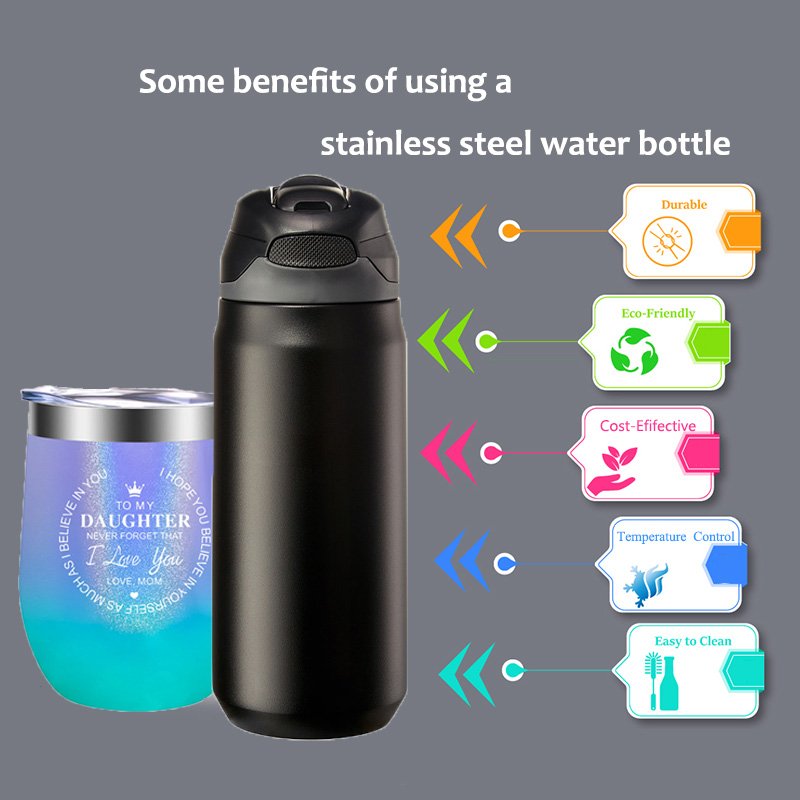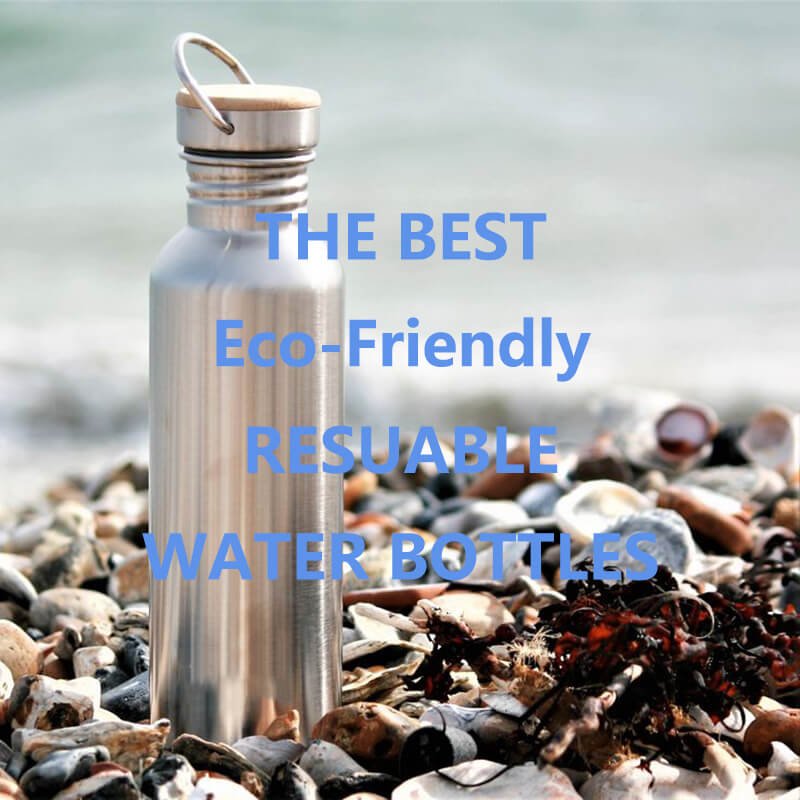The Environmental Impact of Single-Use Plastic Bottles
Single-use plastic bottles stand as a significant contributor to environmental degradation across the globe. According to statistics, over one million plastic bottles are purchased every minute, resulting in an astonishing amount of plastic waste, much of which ends up in landfills or the ocean. These bottles take hundreds of years to decompose, thereby creating long-term pollution problems. Research indicates that approximately 8 million tons of plastic waste enter oceans annually, severely impacting marine ecosystems.
The detrimental effects of plastic pollution extend far beyond unsightly litter. Wildlife is particularly vulnerable; animals ingest or become entangled in plastic debris, leading to injuries or fatalities. For instance, sea turtles mistake plastic bags for jellyfish, a primary food source, while birds often feed their chicks plastic, resulting in malnutrition or poisoning. The ripple effect of these incidents disrupts entire ecosystems, ultimately jeopardizing biodiversity.
The production and disposal of single-use plastic bottles also generate a substantial carbon footprint. Manufacturing processes require significant amounts of fossil fuels and energy, contributing to greenhouse gas emissions. Moreover, many communities lack adequate waste management systems, exacerbating the issue of plastic waste. In areas where recycling facilities are available, only about 9% of plastics are recycled effectively, leaving a vast portion to degrade into microplastics or enter natural habitats.
This escalating crisis calls for urgent action. Transitioning to eco-friendly reusable bottles for sustainable living can significantly reduce demand for single-use options. By adopting such practices, individuals can minimize plastic waste and advocate for environmental stewardship, ensuring that future generations inherit a healthier planet.
Benefits of Using Eco-Friendly Reusable Bottles
Adopting eco-friendly reusable bottles for sustainable living offers numerous advantages that extend beyond mere convenience. One of the most significant benefits is the reduction of plastic waste. In a world increasingly inundated with single-use plastics, utilizing these durable bottles can dramatically decrease the number of plastic containers entering landfills and oceans. By opting for reusable alternatives, individuals contribute to a reduction in carbon emissions associated with the production and transportation of disposable bottles, thereby playing a vital role in environmental preservation.
Moreover, eco-friendly reusable bottles can lead to substantial savings over time. Although the initial investment in a reusable bottle may seem higher compared to buying bottled water, the long-term financial benefits become apparent. With the ability to refill the bottles multiple times, individuals can minimize their dependence on expensive bottled beverages, which contributes to significant cost savings. Additionally, many municipalities provide safe and palatable drinking water, making refills both cost-effective and environmentally sound.
From a health perspective, using eco-friendly reusable bottles promotes better drinking habits. Many reusable options are made from non-toxic materials such as stainless steel or glass, eliminating the risk of harmful chemical leaching commonly found in some plastic bottles. These materials not only ensure water quality but also encourage the habit of drinking more fluids throughout the day, which is vital for overall health and well-being.
Furthermore, eco-friendly reusable bottles come in a variety of stylish and customizable designs. This allows individuals to express their personality and preferences while also being eco-conscious. Such aesthetic appeal can attract a broad audience, from fitness enthusiasts to environmentally aware consumers. Through these diverse design options, eco-friendly reusable bottles effectively combine functionality with an expression of personal style, encouraging wider adoption for a greener lifestyle.
Choosing the Right Eco-Friendly Bottle for Your Lifestyle
When it comes to making an eco-conscious decision for hydration, selecting the right eco-friendly reusable bottle is paramount. It is essential to consider various factors that align with your personal needs and lifestyle. The first aspect to evaluate is the material of the bottle. Options like stainless steel, glass, and BPA-free plastic all offer unique advantages. Stainless steel bottles are known for their durability and insulation properties, making them ideal for both hot and cold beverages. Conversely, glass bottles provide a non-toxic solution, ensuring that no chemicals leach into your drink, but they can be more fragile. BPA-free plastic bottles, while lightweight and less prone to breakage, should be selected wisely to guarantee their durability and safety.
Furthermore, the size and design of the bottle should be compatible with your daily activities. If you are frequently on-the-go, a compact design that fits in standard cup holders may be beneficial. Conversely, if you engage in outdoor activities or need to stay hydrated throughout the day, consider larger capacities that minimize the need for constant refills. A variety of designs and colors are available, allowing you to choose an eco-friendly reusable bottle that reflects your style.
Other vital features to judge include insulation capabilities, which provide significant benefits for those who enjoy both iced and hot drinks. Additionally, ease of cleaning is crucial, particularly for glass and stainless steel bottles that often require more maintenance. Look for bottles with wide openings or those that are dishwasher safe, ensuring that they remain hygienic with minimal effort. By thoughtfully evaluating these elements, you can select an eco-friendly reusable bottle that seamlessly integrates into your lifestyle and supports sustainable living.
Tips for Maintaining and Encouraging Reusable Bottle Use
Maintaining eco-friendly reusable bottles for sustainable living is essential to ensure they serve their purpose effectively and last a long time. Proper cleaning practices play a crucial role in this maintenance. It is recommended to clean your reusable bottles after each use, ideally with warm, soapy water. For more thorough sanitization, consider using a mixture of white vinegar and baking soda, as these natural ingredients can eliminate odors and stains. Some bottles are dishwasher safe, so check the manufacturer’s guidelines for specific cleaning instructions.
Storage is another significant aspect to consider for ensuring the longevity of your reusable bottles. When not in use, store them in a cool, dry place to prevent moisture build-up that could foster bacteria growth. Avoid leaving your bottles in direct sunlight, as this can degrade materials over time, especially for those made from plastic or stainless steel.
Regularly inspecting your bottles for wear and tear is also recommended. Check for cracks, dents, or any signs of wear that may compromise the bottle’s ability to hold liquids safely. If you notice any significant damage, consider replacing the bottle to maintain the quality of your fluid consumption.
Encouraging friends, family, and coworkers to adopt eco-friendly reusable bottles for sustainable living can start with simple initiatives. Consider organizing challenges, such as a month-long commitment to using reusable bottles, fostering a sense of community and accountability. Hosting events themed around sustainability, including workshops that educate participants about the importance of using reusable bottles, can further promote this green lifestyle. Additionally, take advantage of social media platforms to share your experiences and eco-friendly practices, which can inspire others to follow suit and engage in sustainable habits.




Einen weiteren Kurzauftritt erkaufte sich Milliardär Richard Branson (Virgin), er
ist im fertigen Film für einen kurzen Augenblick bei der Personenkontrolle
am Miami International Airport zu sehen. CASINO ROYALE ist nicht, wie fälschlicherweise oft publiziert, der erste Bondfilm ohne Q, dieser ist auch in „Dr.
Die Szene, in der Bond während der Verfolgungsjagd der auf dem
Boden liegenden Vesper in letzter Sekunde mit seinem neuen Aston Martin DBS ausweicht,
verschaffte dem Team rund um Stuntkoordinator Gary Powell mit
7 3/4 Überschlägen einen Eintrag ins Guinnessbuch – Weltrekord!
Ausgestattet mit der Lizenz zum Töten bricht
Geheimagent James Bond zu seiner ersten Mission als 007 auf.
In unserem Moviepilot-Podcast diskutieren wir regelmäßig über neue Serien, Filmhighlights und geben dir die besten Tipps für dein nächstes Streaming-Abenteuer.
Falls du auf der Suche nach ähnlichen Filmen bist, lohnt sich ein Blick in unser Streaming-Programm.
Die Veröffentlichung von Serien und Filmen auf Streaming-Plattformen mit Flatrates erfolgt oft zeitnah zum Blu-ray- oder DVD-Start, also etwa 6–12 Monate
nach der Erstausstrahlung oder dem Kinostart. Doch das
spektakul�re Finale mit einer b�sen �berraschung steht noch
aus …
References:
https://online-spielhallen.de/lucky-dreams-casino-cashback-deine-chance-auf-ruckerstattung/
Type your text and click Translate to see the translation, and to get links to dictionary entries for the words in your text.
Collaborate instantly with real-time voice translation in virtual meetings or
in-person conversations. Deliver accurate, enterprise-grade translations with pro
features like Glossaries, Rules, Clarify and more.
All your information will be saved for the next time you travel.
Passengers booking Premium Economy may be seated in Economy on connecting flights.
With the city’s infamous roundabouts and plenty of parking, Canberra is
one of the easiest cities to get around by car. For a
more affordable alternative, take the rapid3 bus that operates every 15 minutes.
From there, it’s easy to make your way to different parts of the city.
When your flight to Canberra touches down, you’ll be greeted by the friendly staff at Canberra Airport.
Whatever time of year you visit, you’re sure
to find plenty of things to do in Canberra.
For more detailed information and availability see all train options.
Each train ticket offers an individual seat with
basic passenger necessities. For specific questions, please contact our customer service, available 24/7.
Find up-to-date information on departure times, schedules, and prices so you can easily compare and book your tickets.
Highspeedtrains.com Canberra has direct rail service from Sydney with every day
departures.
References:
https://blackcoin.co/jeetcity-casino-a-comprehensive-review/
Enjoy exclusive slots that deliver excitement
and intrigue through creative designs and game-changing features.
Gaming at PlayCroco is more than reels; it’s an adventure,
offering both innovative experiences and rewarding payouts.
For those who appreciate both classic 3-reel and modern imaginative slots, we cater directly to your preferences.
Having an all-encompassing selection ensures a dynamic and diverse gaming environment for every mood.
This blend of the latest releases and cherished classics
keeps our gaming community engaged and delighted.
To perform Croco Spins casino login, click the “log in” button and fill in the login form – specify your nickname and password.
However, in PlayCroco, Login Australia is available
to accounts that need to be verified—it is sufficient to complete the
registration. Players whose accounts have been previously blocked or
have lost access are also prohibited from registering an account.
The bonus code for the welcome gift is PLAYCROCO.
If a player transfers $20, the playing amount will increase to $60, $50 to $150,
and $100 to $300. Play Croco sign-up bonus requires you to
enter the bonus code 10FREE.
All you win-hungry punters on the hunt for some Australian pokie
jackpots go login to your account right now to Playcroco Casino!
Currently, Play Croco offers only a mobile-optimized version of their website.
The library is persistently refreshed with new games,
maintaining a fresh experience. This bonus updates regularly,
so it’s good to keep an eye on their promotions page.
It’s an excellent chance to bolster your play budget, giving you the freedom to explore
all gaming choices.
paypal casino
References:
https://hitechjobs.me/companies/best-paypal-casinos-usa-ᐈ-top-real-money-paypal-casinos
online pokies paypal
References:
http://skcable.org/